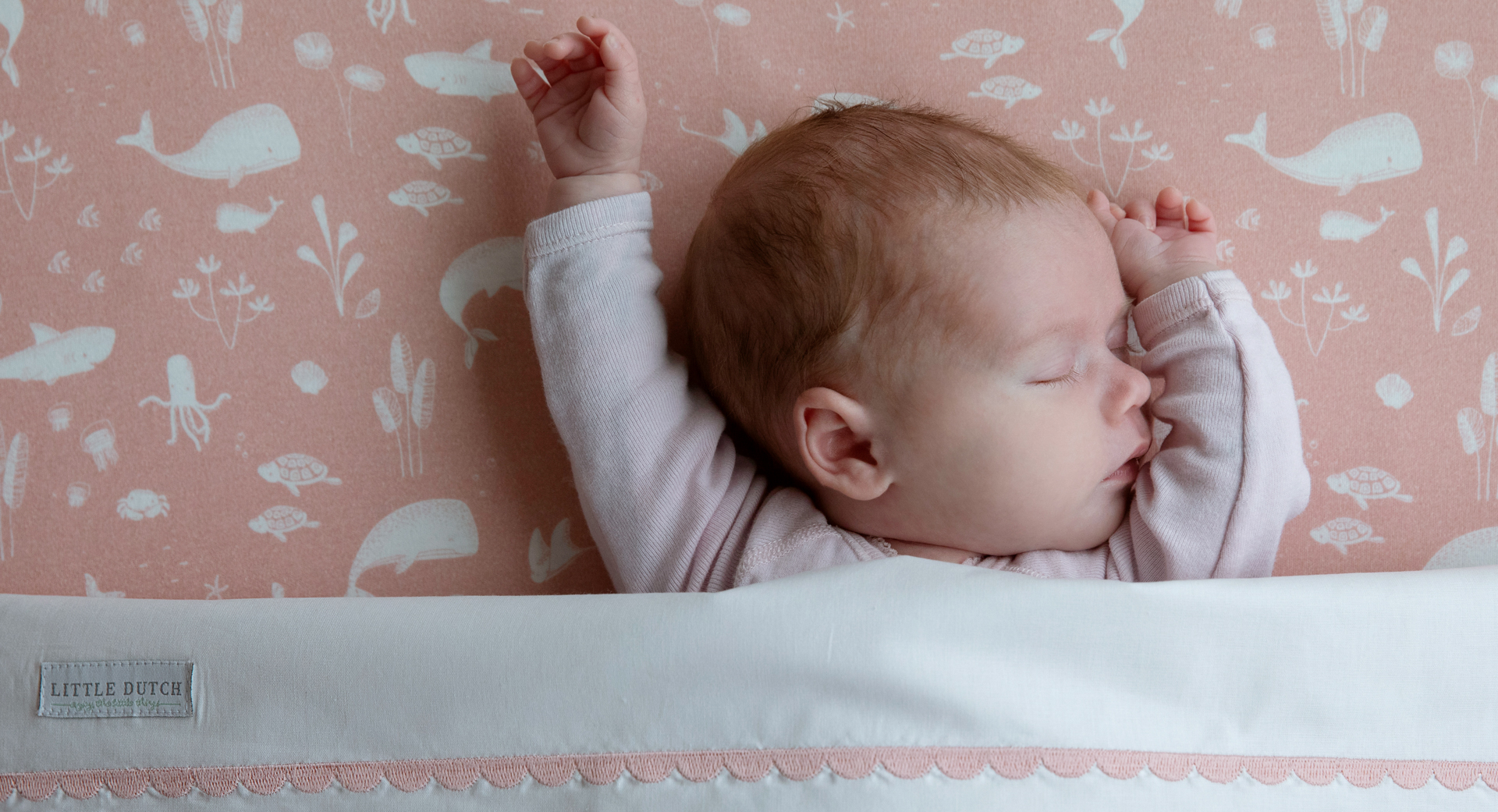Tips from Little Dutch
Your baby’s sleep schedule
Eat and cry and sleep and fill their nappies. There’s no way around it: this is what baby’s first months are all about. It may not sound very interesting, but at the same time, a lot is happening for you as a new mom (to be). Little Dutch’s office is full of mothers and we would like to share our tips and tricks with you.

What is there to know about baby’s sleep schedule? Well, what we know from experience is that the sleep schedule will change from time to time during the first year of your baby’s life. Changes may vary from child to child, but in general, the sleep schedule follows a routine:
0 - 3 months
The first months, your baby will sleep for most of the day: about 14 to 18 hours. For the first six weeks, they will not sleep longer than 3 hours in a row. When they’re awake, they will want to be fed. Even during the night, because the baby does not know the difference between night or daytime. After about 6 weeks, they will get the hang of it and adopt a certain rhythm. You will notice that your baby sleeps a bit longer.
4 - 6 months
Your baby’s sleeping hours will be reduced to about 14 or 15 hours a day. Your baby’s belly has grown a bit, so it can hold more milk. This will keep your baby satisfied longer. The perception of day and night has developed too, and as your baby sleeps deeper, you’ll start noticing that your child sleeps longer at night. Sometimes even 8 hours in a row. (Yes!) Babies of this age will surely need about 3 to 4 naps during the day.

7 - 9 months
Your baby has passed the 6-month mark. You will notice the sleep schedule will become more regular. Your baby still requires the same number of hours of sleep as before, but he or she will sleep most of these hours (11 hours on average) at night. At daytime, he or she needs about 3 naps for the remaining 4 hours, 1 of which is a short powernap. Although there are less sleep moments, it may be more difficult for your baby to fall asleep. Babies go through lots of physical developments during this stage of their lives, which is why they may become a little restless.
10 - 12 months
At this age, your child may not be needing more than 1 or 2 naps during daytime. These will last for about 1.5 to 2 hours each. The other 10 hours of sleep will take place during the night. Your baby is nearly a year old now and he or she is going through many physical changes. Falling asleep may still be somewhat problematic. That is only natural: who wants to go to sleep when you can crawl around instead?



Comments